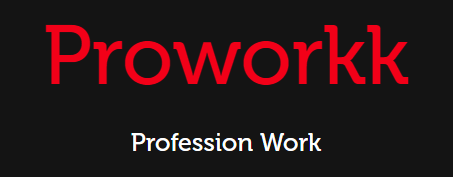Profession: Software Tester
Experience: 8 years
Location: San Francisco, USA
My Personal Experience:
My journey as a software tester began eight years ago when I joined a small software development company in San Francisco. Over the years, I have grown personally and professionally, tackling various challenges and witnessing the tech industry’s evolution.
From manual testing early in my career to mastering automation tools, I have adapted to the profession’s changing demands. I have worked on projects ranging from mobile applications to enterprise-level software solutions, each adding to my expertise and knowledge.
Throughout my career, I have realized that being a software tester is not just a job; it’s a passion for ensuring the best user experience and contributing to the success of innovative software products.
The Hard part I feel about this profession as per my experience till now:
Being a software tester in today’s fast-paced tech world comes with its own set of challenges. One of the main difficulties I have faced is keeping up with the ever-changing landscape of technology. Software and applications are constantly evolving, and as a tester, it is essential to stay updated with the latest tools, methodologies, and testing techniques. This continuous learning process can sometimes be overwhelming, but it’s crucial to ensure the effectiveness of our testing efforts.
Another aspect that adds complexity to the role is dealing with manual testing. While automation has become a prominent trend, certain scenarios still demand manual testing. As a software tester, I often engage in manual and automated testing, balancing efficiency and precision to deliver high-quality results.
Performance testing is yet another crucial aspect of the job. Ensuring the software performs well under various conditions and user loads is challenging. Performance testing demands meticulous planning, execution, and analysis to identify and rectify potential bottlenecks and optimize overall performance.
Things I find interesting or feel “happy” about this profession are:
Despite the challenges, being a software tester has been a rewarding journey. One of the most exciting aspects of my profession is uncovering hidden bugs and glitches that could impact user experience. By detecting and fixing these issues before the software reaches the end users, I play a vital role in enhancing the overall quality and reliability of the product.
Moreover, as a software tester, I explore various types of software and applications across different industries. Each project brings unique challenges and learning opportunities, from e-commerce platforms to healthcare systems and entertainment apps. This diversity keeps my job intriguing and enriches my understanding of different domains.
Pros And Cons I feel about this profession:
Pros:
- Continuous Learning: Being a software tester means staying up-to-date with the latest technologies and testing practices. This constant learning process keeps my skills sharp and makes me a valuable asset to the team.
- Versatility: Software testing is applicable to various domains and industries, allowing me to explore different sectors and expand my knowledge.
- Impactful Work: By identifying and resolving bugs, I play a crucial role in ensuring a seamless user experience and maintaining the software’s reputation.
Cons:
- Time Constraints: Sometimes, the pressure of tight deadlines can lead to rushed testing, which may result in overlooked issues.
- Repetitiveness: In certain testing phases, there can be repetitive tasks, which may become monotonous over time.
- Communication Challenges: Coordinating with different teams and stakeholders can be complex, especially when conveying the severity of a discovered bug.
My suggestions for newcomers in this profession:
I offer valuable advice for those aspiring to become software testers based on my experience. Firstly, embrace continuous learning. Stay updated with the latest testing methodologies, tools, and industry trends. This will make you a better tester and increase your value in the job market.
Secondly, don’t shy away from exploring various types of software testing. Gain expertise in manual testing, automation testing, performance testing, and other specialized areas. This versatility will make you a well-rounded tester capable of handling diverse projects.
Lastly, cultivate strong communication skills. As a tester, you’ll often need to convey complex technical information to non-technical stakeholders. The ability to communicate effectively will facilitate smoother collaboration and contribute to the overall success of the project.
